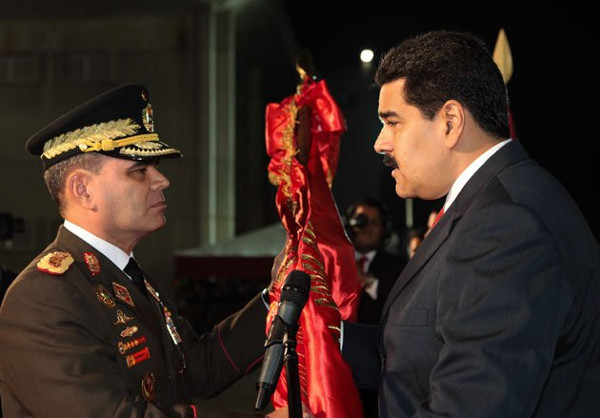
It’s coming to a close, fans of the Bolivar Republic. This sad story in Caracas is unsustainable and this weekend’s election showed either people like 10,000% inflation or the Socialists United (PSUV) need to squash opposition to remain in power. It’s probably the latter.
The Venezuela oil economy that made PSUV powerful and made Venezuela one of the richest countries south of Texas is on its last legs. It’s not because of Washington, as PSUV’s novel writers like to say. It is because of the government leadership.
With sanctions in place due to Maduro basically banning all serious contenders from running for the presidency, a slight to the community of democratic nations in the hemisphere, it is more certain than ever that Venezuelan oil major PdVSA will get sucked deeper into this political black hole. A Maduro win is potentially a crushing defeat for PdVSA. Ironically, a Maduro win may also ultimately be bad for Maduro himself.
He needs a miracle to make it through his next term. Even a full-on dictatorship won’t save the Venezuelan president.
“If we assume that the incompetent economic team cannot insulate PdVSA cashflow with U.S. still the most important paying customer, then this should further aggravate cashflow stress…and it is not about having sufficient funds to pay bond investors,” says Siobhan Morden, managing director for Nomura Securities in New York. “It is rather that there are sufficient funds left to pay off corrupt officials and the military, to sustain support for Maduro,” she says.
There is already dissent in the military among the rank and file.
The U.S. has banned numerous transactions with Venezuela. It is also making it harder to move money through the financial system. Maduro’s foray into cryptocurrency, launching its petro coin, is not going to save it.
So the thinking goes that cashflow stress at PdVSA, the PSUV ATM machine, undermines Maduro. Nomura predicts trade sector sanctions against Venezuela, with an incremental approach that preserves reputational costs and future leverage for an economy that is already entering the terminal phase of collapse in oil production capacity.
“It will become increasingly difficult for a global integrated oil company to function within the constraints of international isolation,” Morden says. “Especially for a government that cannot effectively insulate commercial and financial flows from the legal threats of U.S. sanctions and bondholder litigation.”
Maduro sees himself as carrying on Hugo Chavez’s legacy. He is fighting the good fight against Yankee imperialists and their like-minded capitalists in the Venezuelan business class. These are PSUV’s natural enemies.
It was Chavez who first expanded the powers of the presidency by changing the constitution to allow him to run for another term. He also removed one chamber of Congress, similar to what Maduro did years later when he cut the National Assembly off at the knees and created his Chamber of Yesmen, known as the Constituent Assembly. In 2004, Chavez effectively took control of the Supreme Court by expanding its size and appointing 12 justices. The court is 100% PSUV. In 2009, Chavez led a successful referendum ending presidential term limits. Maduro can run for ever.
But he will not.
Oil accounts for about 95% of Venezuela’s export earnings and 25% of its gross domestic product.
PdVSA controls all the country’s oil exploration, production, and exportation. PdVSA is going broke. They are not investing in oil production. One would think that if low oil prices was Venezuela’s problem, as Maduro tells his base, then a 100% increase in price from $30 a barrel just three years ago, to $70 today would signal a return to the good ole days. As reality would have it, Venezuela has only gotten worse even as oil prices haven risen.
And so as PdVSA runs out of money in its ATM to pay off people in the military and within the political apparatus to play along, one wonders what happens when the money dries up?
It is drying up.
The weekend elections further increase the trend of Venezuela’s isolation from Latin America, let alone the U.S. Peru, Argentina, Brazil, Mexico, Panama, Paraguay, Colombia, Honduras, Costa Rica and Guatemala all took diplomatic measures on recalling their ambassadors. They think the election was a sham.
Washington retaliated post election with more financial sector sanctions making it impossible for Venezuela to raise funds in its most reliable market: the U.S. Tighter sanctions will further compromise PdVSA and that ultimately forces some sort of regime change in Caracas.
FORBES

Leave a Reply
You must be logged in to post a comment.